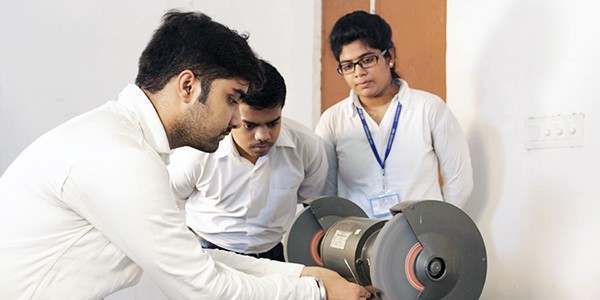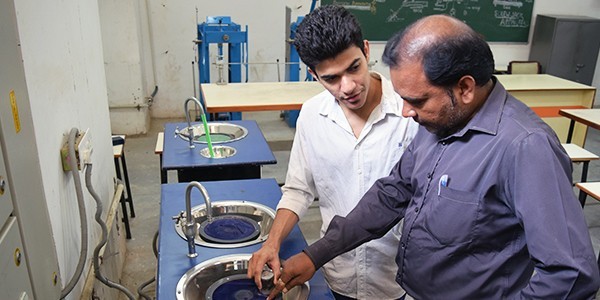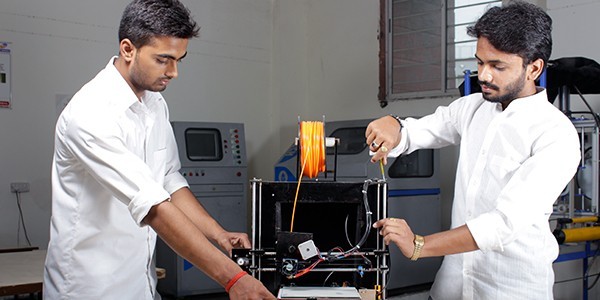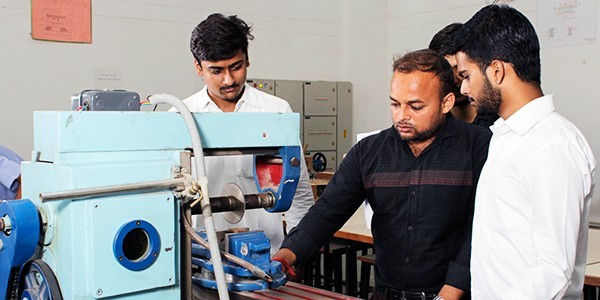M. Tech – Computer Aided Design and Manufacturing
Educational Objectives
We are living in very advanced times, and even if we remove the scope of immense competition because of this extremely large world population, we still are left with either trying to sustain the level of development we have already made or we grow as a race and continue advancing with increasing knowledge. Understanding that the latter is the only choice, BBDU which is the best M.Tech college in Lucknow, has been offering an M.Tech in the most vital engineering division of CAD/CAM.
As technologies have advanced, we, humans, and our machines have evolved and become more sophisticated. As a result, with our growth, the intricacies related to the design of such machines and equipments increase (from a simple pen to a whole jet). Thus, to deal with such levels of increasing complexity, we need courses like the M.Tech in CAD/CAM in Lucknow.
The educational objectives of this course at BBDU are:
- Thorough, and logical, learning of the concepts related to CAD & CAM
- Hands-on learning of the techniques and tricks taught in the course
- Real-time learning and application via compulsory training and/or project
- In-depth learning via international e-journals and research papers
Opportunities For CAD/CAM Engineers
Research & Job perspective: We have all witnessed that in today’s consumer market, irrespective of the division/use of the good, no product can stay much longer either without facing competition or without being replaced by the parent company with a better product. For such regular advancements, continuous research is being carried out by design engineers who make this possible.
Purely Job perspective: For those who do not wish to move ahead in research, companies from almost every sector offer jobs which involve mostly keeping the production on track and complete tests etc.
Positions offered post M.Tech. in CAD/CAM:
- Design Engineer
- R&D Engineer
- Maintenance Engineer
- Architectural Designer
- Design Technician
- Research Scholar
- Surveyor
Program Outcomes
- Engineering Knowledge: Apply the knowledge of mathematics, science, engineering fundamentals and an engineering specialization to the solution of complex engineering problems.
- Problem Analysis: Identify, formulate, review literature and analyze complex engineering problems reaching substantiated conclusions using first principles of mathematics, natural science and engineering sciences.
- Design / Development of Solutions: Design solutions for complex engineering problems and design system components or processes that meet the specified needs with appropriate consideration for the public health and safety and the cultural, societal and environmental considerations.
- Conduct Investigations of Complex problems: Use research based knowledge and research methods including design of experiments, analysis and interpretation of data, and synthesis of the information to provide valid conclusions.
- Modern Tool Usage: Create, Select, and apply appropriate techniques, resources and modern engineering and IT tools including prediction and modeling to complex engineering activities with an understanding of the limitations.
- The Engineer and Society: Apply reasoning informed by the contextual knowledge to assess societal, health, safety, legal and cultural issues and the consequent responsibilities relevant to the professional engineering practice.
- Environment and Sustainability: Understand the impact of the professional engineering solutions in societal and environmental context and demonstrate the knowledge of , and need for sustainable development.
- Ethics: Apply ethical principles and commit to professional ethics and responsibilities and norms of the engineering practice.
- Individual and Team Work: Function effectively as an individual and as a member or leader in diverse teams and in multidisciplinary settings.
- Communication: Communicate effectively with the engineering community and with society at large. Be able to comprehend and write effective reports documentation. Make effective presentations, and give and receive clear instructions.
- Project management and finance: Demonstrate knowledge and understanding of engineering and management principles and apply these to one’s own work, as a member and leader in a team. Manage projects in multidisciplinary environments.
- Life-long learning: Recognize the need for, and have the preparation and ability to engage in independent and life-long learning in the broadest context of technological change.
Program Specific Outcomes
- To apply design and development principal to provide solution in Experiment design, stress analysis, finite element analysis and CAD/CAM domain to meet desired needs.
- To apply competency and proficiency in the field of allied engineering.
Syllabus
Apply Now
Error: Contact form not found.
Engineering Courses
Labs
- Production Laboratory
- Design Laboratory
- Materials Testing Laboratory
- Thermal and Fluid Laboratory
- Basic Workshop
- Mesurement & Metrology Lab
- Experimental Stress Analysis Laboratory
Old Syllabus
[pdf-light-viewer id=”8611″]









